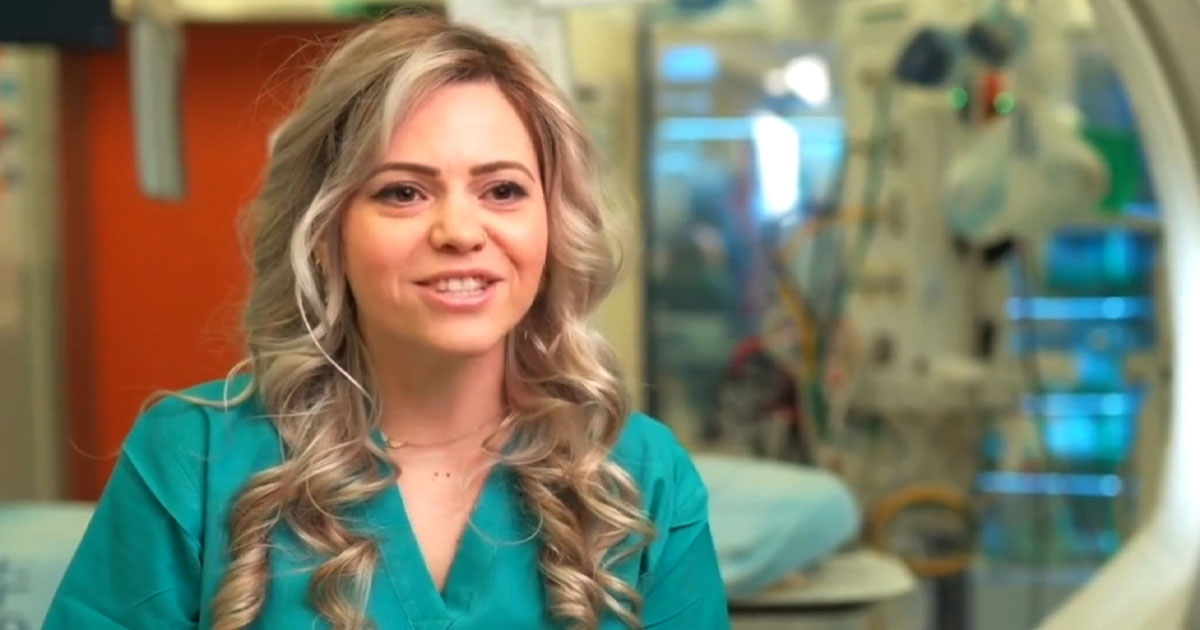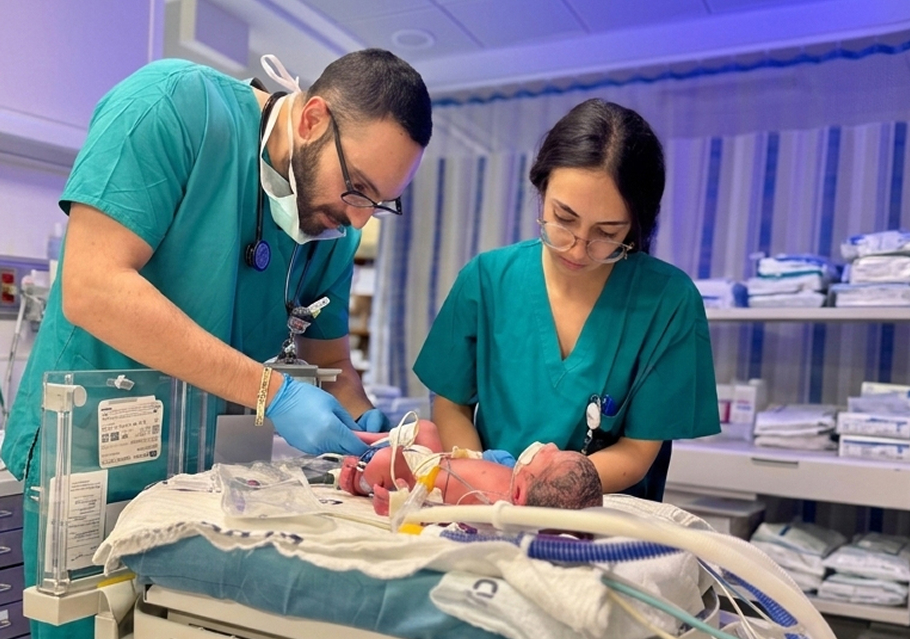Until recently, a 14-year-old Palestinian teen considered herself a typical, healthy schoolgirl.
Although she was one of only a few girls in her class who didn’t have her period yet, she wasn’t too worried. But then her voice mysteriously turned deep and became a source of extreme embarrassment. Her family doctor referred her to a Palestine Authority endocrinologist, who had trained at the Hadassah Medical Center, under Hadassah's head of Pediatric Endocrinology, Prof. David Zangen.
Tests showed that the teen was born with a rare androgen insensitivity syndrome. This means she is genetically male, with one X chromosome and one Y chromosome. Individuals with this unusual condition have the external sex characteristics of females, but do not have a uterus.
The teen was referred to Hadassah Hospital, where ultrasound revealed that she had testicles in her abdominal cavity. Prof Zangen immediately summoned his multidisciplinary team--including Senior Pediatric Urologist Dr. Guy Hidas, a psychologist, a geneticist, and a social worker--to confirm the patient’s gender. The team's recommendation and the family’s final decision about surgical intervention would determine the teen’s gender identity for the rest of her life.
The family decided that the teen should have her testicles surgically removed.
Dr. Hidas performed the procedure. "At Hadassah, a multidisciplinary team was established three years ago to help patients suffering from similar disorders,” he relates. “Beyond the discomfort of the surgical procedure,“ Dr. Hidas explains, “this is not an easy choice in terms of image.” Therefore, before proceeding with any surgical intervention, he emphasizes, “there is a duty to know the patient's choice.”
Because they feared their daughter would be shamed if her secret came out, the Palestinian teen’s family chose to finance the surgery privately, despite the considerable financial burden involved. They were assisted by Project Rozana, conceived by Hadassah Australia in 2013 to raise funds for the treatment at Hadassah of critically-ill Palestinian children from the West Bank and Gaza. The project was named in honor of a young Palestinian girl, Rozana Abu Ghannam, who was saved at Hadassah Hospital after suffering life-threatening injuries. Project Rozana also funds the training at Hadassah of Palestinian physicians, nurses, and therapists to enable them to build health capacity in their own communities.
In addition to the financial assistance from Project Rozana, Hadassah discounted the fee for the procedure so the fund would not have to pay the extra cost of private surgery. "We don't have enough words to thank the team, particularly Prof. David (Zangen) and Dr. Guy (Hidas)," relates the girl's father. "When you meet doctors like these at Hadassah, they become family. They did something very special for us. We also appreciate their absolute discretion. Parents should know that if they encounter such a serious problem, Hadassah has someone to take care of them."
The now-smiling teen comments: "I didn't understand why such a thing was happening to me when my voice changed. Only Drs. David and Guy had a solution, and now I can be happy."
Hadassah’s DSD (Disorders of Sex Development) team has treated more than 20 boys and girls with a variety of complex conditions, most of which require surgical intervention.



.svg)






